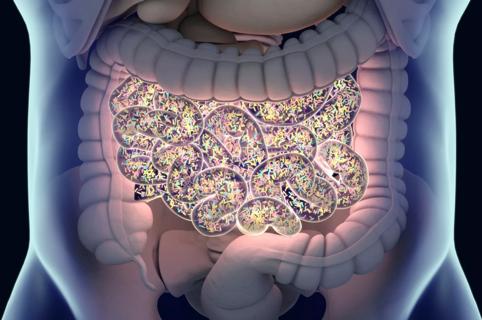Epilepsy specialist will bridge research and patient data with clinical care

Epilepsy specialist Lara Jehi, MD, has been appointed the inaugural Chief Research Information Officer at Cleveland Clinic.
Advertisement
Cleveland Clinic is a non-profit academic medical center. Advertising on our site helps support our mission. We do not endorse non-Cleveland Clinic products or services. Policy
In this newly created position, Dr. Jehi will establish and oversee a robust research informatics environment to advance biomedical research throughout Cleveland Clinic. She will work closely with colleagues in information technology, research, finance and other key departments to optimize the health system’s digital infrastructure to support research projects and accelerate new treatments for patients.
“As healthcare becomes vastly more data-intensive, the Chief Research Information Officer role will bridge research and patient data with clinical care,” says James Young, MD, Cleveland Clinic’s Chief Academic Officer. “Dr. Jehi’s expertise as both a data-based researcher and a physician will provide strategic vision to leverage large clinical informatics systems to drive innovation.”
Dr. Jehi has been a staff physician in Cleveland Clinic’s Epilepsy Center since 2006. She is currently spearheading multi-institutional National Institutes of Health (NIH)-funded grants focused on data science. She has led teams that developed the first nomograms for individualized outcome prediction after epilepsy surgery, work that was recognized by Lancet Neurology as one of five standout studies from 2015 for advancing personalized treatment in epilepsy. Dr. Jehi’s data-driven algorithms for clinical care decision-making are being used, studied and expanded worldwide.
“We owe our patients a healthcare system that harnesses technology, creativity and science to provide the best care of today and to develop the pioneering care of tomorrow,” says Dr. Jehi. “As digital healthcare delivery matures, our team will harness Cleveland Clinic’s robust health information and data sources to shape research innovation in basic and translational science, clinical research and care delivery.”
Advertisement
Dr. Jehi holds several research leadership roles at Cleveland Clinic. As Co-Director of Network Capacity for the Clinical and Translational Science Collaborative of Cleveland, she leads a team to facilitate multicenter clinical trials through streamlined recruitment efforts using the electronic health record. She is the principal investigator of Cleveland Clinic’s biorepository, a role in which she leverages information technology, enterprise analytics and regulatory support to efficiently scale up and incorporate biobanking efforts within clinical workflows. She is also a vice-chair of Cleveland Clinic’s Institutional Review Board.
Dr. Jehi is professor of neurology at Cleveland Clinic Lerner College of Medicine and chairs several key commissions in the International League Against Epilepsy and the American Epilepsy Society. She has authored or co-authored more than 100 peer-reviewed publications and 10 book chapters, and she is a regular reviewer for NIH study sections.
She received her medical degree from American University of Beirut and completed both her residency in neurology and fellowship in clinical neurophysiology at Cleveland Clinic. She graduates from Dartmouth College on February 1, 2020, with a master’s degree in healthcare delivery science.
Advertisement
Advertisement

First full characterization of kidney microbiome unlocks potential to prevent kidney stones

Researchers identify potential path to retaining chemo sensitivity

Large-scale joint study links elevated TMAO blood levels and chronic kidney disease risk over time

Investigators are developing a deep learning model to predict health outcomes in ICUs.

Preclinical work promises large-scale data with minimal bias to inform development of clinical tests

Cleveland Clinic researchers pursue answers on basic science and clinical fronts

Study suggests sex-specific pathways show potential for sex-specific therapeutic approaches

Cleveland Clinic launches Quantum Innovation Catalyzer Program to help start-up companies access advanced research technology